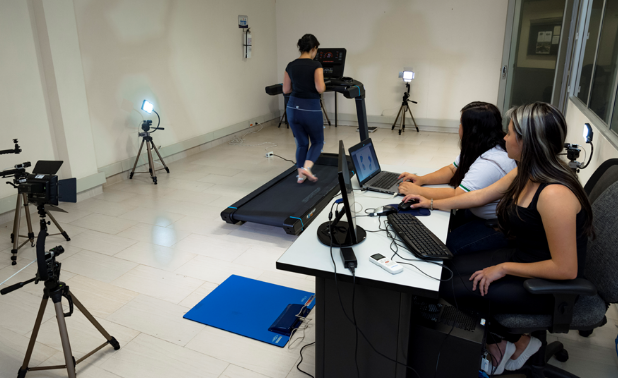Biomechanics Laboratory
Virtual reality gait training Laboratory
This research shows promise in becoming a standard practice for long term amputee rehabilitation. Exceptional rehabilitation is not universally available to all disabled individuals due to circumstances which limit patient care such as a limited number of trained personnel, limited access to therapy in remote areas, limited patient feedback, limited visits under insurance policies and differing expertise of personnel.Providing real-time, objective feedback will help to continuously improve the quality of life of amputee individuals and provide standardized baseline techniques. The research described in this dissertation expands the use of virtual reality systems to amputee rehabilitation. A virtual reality system with performance metrics was designed, developed and tested. The effectiveness of real-time feedback through self visualization was investigated.This virtual reality system integrated real-time kinematic data into a virtual reality system. Subjects participated in a baseline session, three intervention sessions and a final training session. This Virtual Reality Rehabilitation (VRR) study, incorporating real-time feedback and objective performance metrics, provided a successful baseline demonstration for future research using VRR to improve gait techniques and enable more efficient and effective rehabilitation for amputees and other disabled individuals. 
